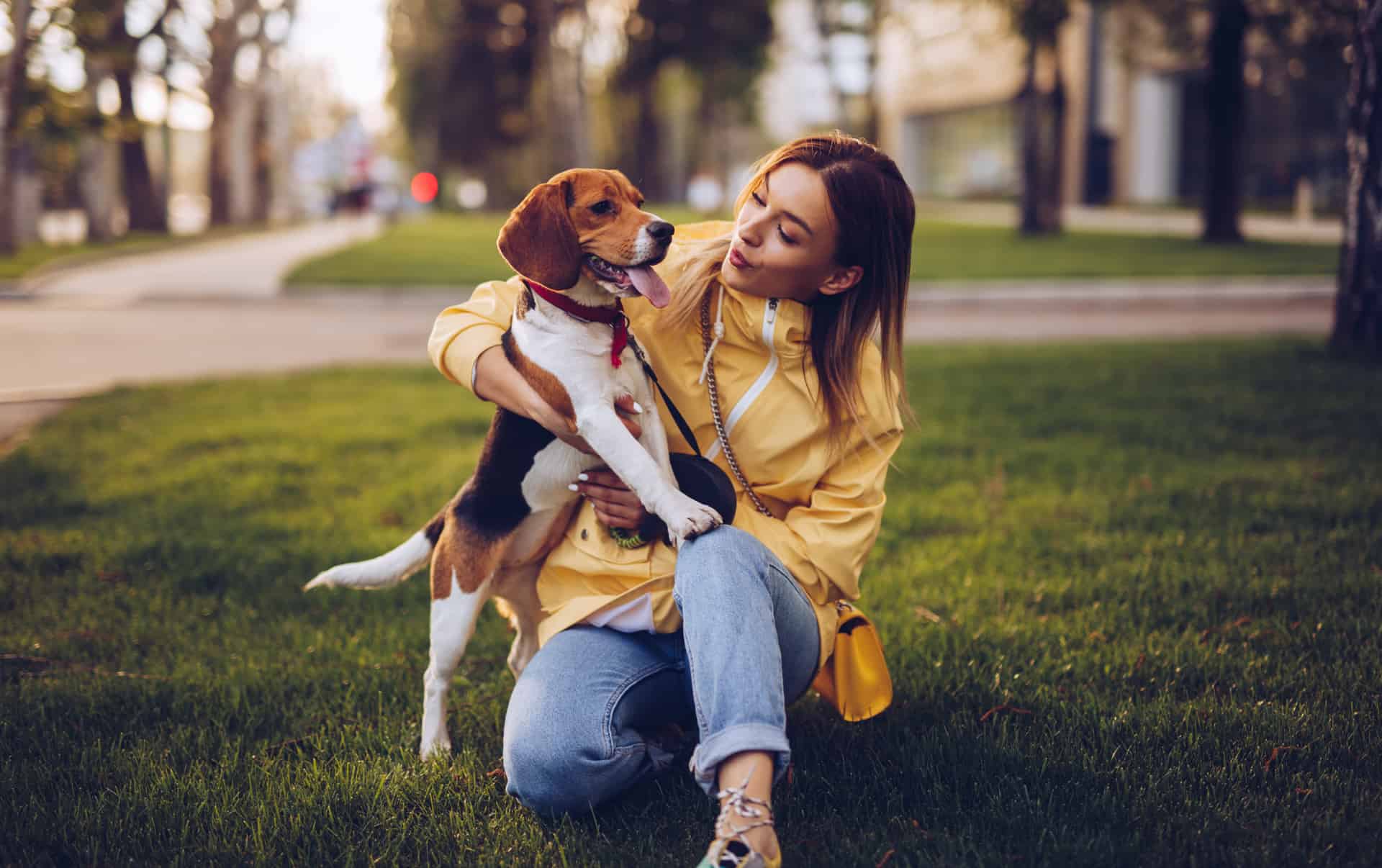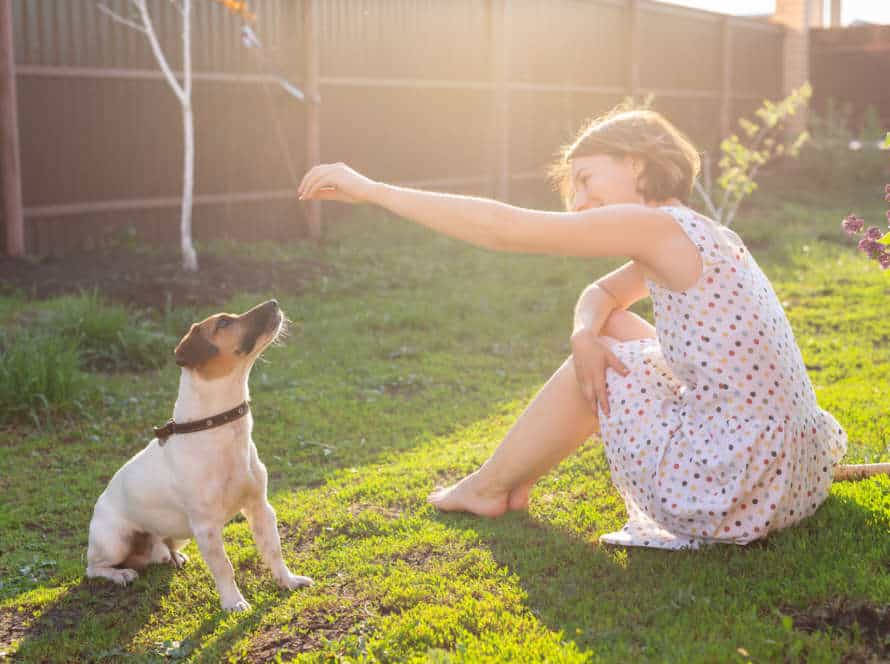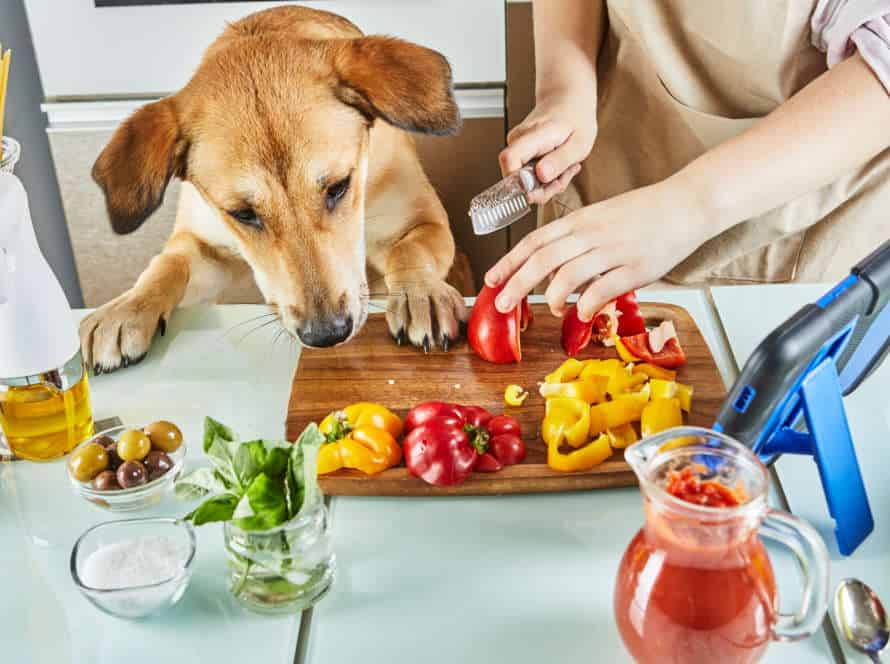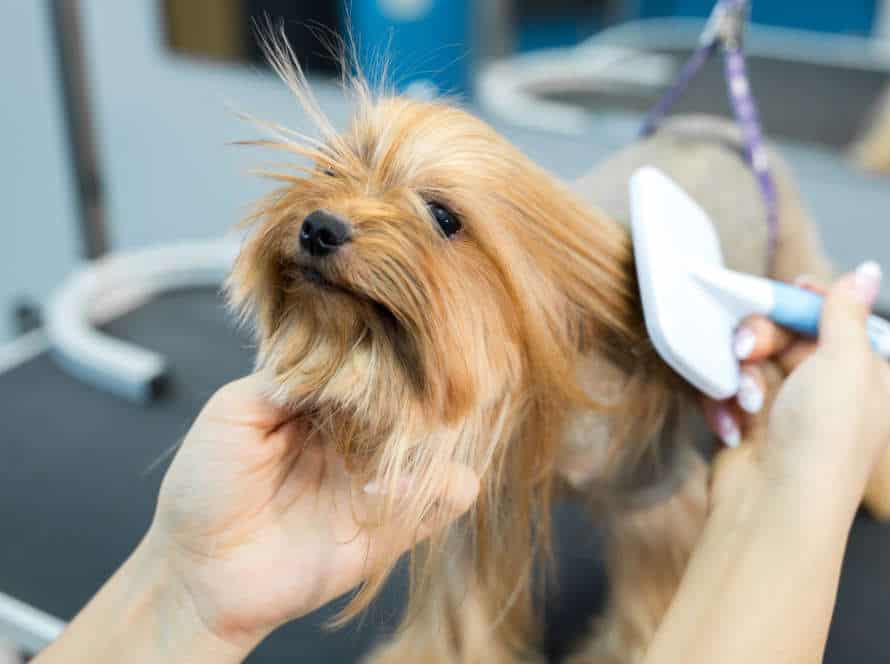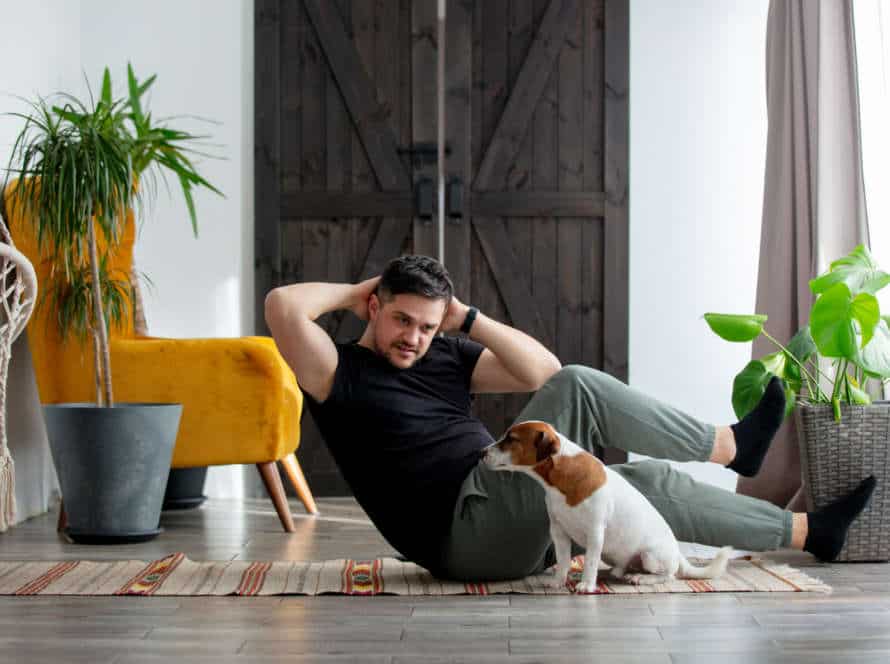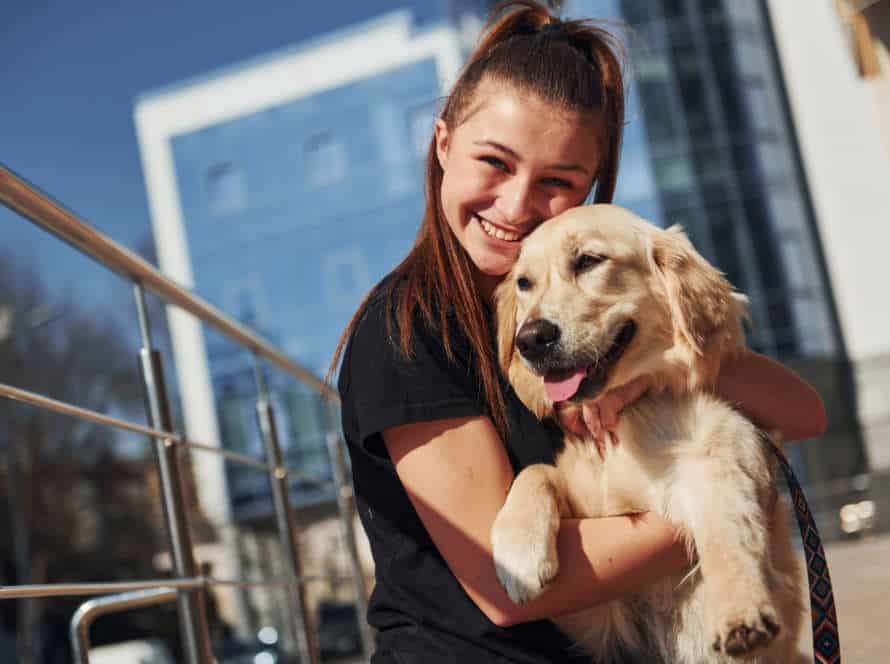Exercises for Senior Dogs
Senior doggies require special care! To gain their trust, comprehending the best exercises for them is important. Here we go! We’ll talk about exercises that can help support their needs and build trust between you and your senior pup.
Importance of Exercise for Senior Dogs’ Health
Exercise is a must for senior dogs! It helps with weight, joints, brain power, and overall well-being. Here are some of the best activities for older pooches:
- Short walks: They may not be able to go for long ones, but short strolls keep their muscles moving.
- Swim Therapy: Swimming is a low-impact exercise that’s perfect for senior dogs. It helps with cardiovascular fitness, muscle strength, and joint mobility.
- Puzzle Toys: Problem-solving games and puzzles enhance their cognitive skills and mental agility.
- Trust-Building Exercises: Blindfolded trail walks, obstacle courses, or scent training help create a strong bond between senior dogs and their owners while being active.
Make sure to pick activities that fit your senior dog’s needs and abilities. Ask your vet for advice on any health concerns.
Best Exercises for Senior Dogs
As dogs age, like humans, they can become less mobile and have different health issues. It’s still important to keep your furry pal active with exercises that suit them. Here are the best ones for senior dogs:
- Gentle walks: Being outside is great for fitness, socializing and mental stimulation.
- Stretching: Stretching increases blood flow and reduces joint stiffness.
- Swimming: Swimming is a low-impact exercise which is great for older dogs with joint or muscle pain.
- Puzzle toys: Puzzle toys are great for sharpening the mind and improving cognitive function.
- Trust-building exercises: These exercises help senior dogs feel more secure in their surroundings. This includes massaging them gently or putting your hand on them to make them feel safe.
By using these exercises with your senior pup, it’ll give them a better life in their golden years.
Physical Limitations to Consider When Exercising Senior Dogs
As dogs age, their physical limitations must be taken into account when exercising. These may include joint pain, arthritis, and reduced mobility. To stay healthy, senior dogs need gentler exercises that suit their needs. Trust-building activities are great for keeping them active and alert. Here’s a few ideas:
- Hide-and-seek. This strengthens the bond between you and your pet, plus it gets them stretching.
- Treat puzzles. Encourage your senior dog to think things through by giving them a treat puzzle. Great for the mind.
- Low-impact exercises. Swimming, short walks, and stretching are all low-impact and won’t put too much strain on their joints. Ask your vet for the best plan for your pet.
Pro Tip: Regular exercise will keep them happy and healthy.
Trust-Building Exercises for Senior Dogs
Senior pooches need extra attention. Building trust with these pups can help them be healthy in mind and heart. You can do it from home! Positive reinforcement, interactive toys and lots of love are great tools. Here’s how to use trust-building exercises to support a senior pup.
Why Trust is Important.
Trust is vital in the relationship between an elderly pup and their owner. It builds a strong connection, making training and caring for the dog simpler. Here are a few trust-building exercises that can help create a strong and trusting bond:
- Eye contact: Gaze into your dog’s eyes for a few seconds each day to help them feel relaxed around you.
- Treat training: Use positive reinforcement when training your pup and give them treats as rewards for good behavior. This helps them connect good behavior to positive outcomes.
- Slow and steady: Move slowly and calmly to make them feel more secure.
- Consistency: Stay consistent in your training and care to foster trust over time.
By following these trust-building exercises, you can support the needs of your senior dog and strengthen the loving and trusting relationship between the two of you.
Building Trust with Positive Reinforcement
Positive reinforcement is a great way to build trust with older pooches. Here are some tips on how to do it:
- Treat Training: Give treats when your dog does good things like sit, lie down, or stay still. This makes them understand what behaviour is ok.
- Slow Introductions: Take it slow when your pup meets new people, animals, or things. Give them time to get used to the situation.
- Gentle Touch: Give your pup gentle touches and massages. This helps them feel comfortable and closer to you.
- Quality Time: Spend time with your senior dog. Play games, go for walks, or cuddle on the couch. This strengthens your bond and builds trust.
Trust-building Activities for Senior Dogs
Gaining trust from elderly pooches may take time and patience. But, doing trust-building activities will aid their needs and make your bond stronger. Try these trust-building exercises:
- Let them get used to new places, sights, sounds, and smells gradually.
- Make use of positive reinforcement when training and rewarding commands. This will improve their mental alertness and confidence.
- Grooming is an outstanding way to build trust as it involves physical contact. Plus, you can check for skin problems.
- Give regular exercise and go for a walk with them. This will help maintain their physical and mental wellbeing, leading to a closer relationship with your senior dog.
Activity 1: Treat Hiding and Retrieval
The “Treat Hiding and Retrieval” exercise is a great way to bond with your senior pup and keep them active. Here’s how to do it:
- Get your pup’s attention and show them a treat or a toy.
- Let them see you hide it in a nearby place.
- Encourage them to find it using words or gentle pushes.
- When they locate it, reward them!
- Repeat, gradually making it harder. Make them search faster, or hide the treat in different spots.
This activity strengthens your relationship and stimulates their physical and mental abilities.
Activity 2: Controlled On-Leash Walks
Controlled, on-leash walks are a great trust-building exercise for senior dogs. Strengthening the bond between the pup and their owner while providing exercise and stimulation. Here’s how to do it:
- Get a good-fitting leash and collar or harness.
- Pick a low-stress environment, like a quiet street or park.
- Walk slowly, letting the dog explore in a certain radius.
- Praise, treat, or pet for good behavior.
- If the dog becomes anxious, stay calm and redirect their focus with verbal cues or by moving away from the stressor.
- Gradually increase the distance and length of the walk as the pup becomes more comfortable.
Always prioritize the dog’s safety and comfort, and be patient with progress.
Activity 3: Gentle Massage and Body Handling
Activity 3: Gentle Massage and Body Handling is a great trust-building exercise for senior dogs. It can help with pain, reduce anxiety, and increase flexibility. Here’s how to do it:
- Position your dog in a cozy and safe spot, like on a mat.
- Stroke or pet them with long, calming motions.
- Do circular motions on their back, neck, and hips.
- Check their reactions and stop if they’re uncomfortable or hurt.
- Introduce gentle stretches to improve flexibility and mobility.
- Repeat the exercise a few minutes each day. This will help the senior dog bond with you and be more at ease in their body.
Activity 4: Basic Training Commands (e.g. Sit, Stay)
Trust-building exercises for senior dogs start with activity 4. Teach your dog basic commands like ‘Sit‘ and ‘Stay‘. Here’s how:
- Hold a treat near their nose.
- Move the treat up and make them follow it.
- When their bottom hits the ground, say ‘Sit’ and give the treat.
To teach ‘Stay,’ command them to sit.
- Hold up your hand like a stop sign and take a step back.
- If they stay seated, say ‘Stay’ and give a treat.
Practice these commands in short sessions. Reward your pup with treats and praise. With patience and consistency, your senior dog will learn to obey. This strengthens the trust and bond between you.
Activity 5: Playtime with Puzzle Toys
Activity 5: Puzzle Toys are great for engaging and supporting senior dogs. Plus, it helps build trust! Here’s how to use them:
- Introduce the toy and let your dog explore.
- Show your pup how to use it. Put treats inside, then encourage them to get them out.
- Increase the difficulty level as they get more confident.
- Monitor them during playtime. Don’t let them get frustrated or overwhelmed.
- Reward and praise their efforts and successes.
Puzzle toys can help with cognitive and physical health, bonding and trust, and quality of life.
Techniques to Encourage Positive Behaviors in Senior Dogs
Senior doggies may show signs of distress or aggression as they age. But, with trust-building techniques, you can promote good behavior in an effective and humane way. Here are some tips to try:
- Positive reinforcement: Offer treats, compliments, or playtime to your pooch when they act as expected, like sitting or responding when called.
- Familiarity-building exercises: Spend time with your pup doing activities they like, like daily walks, belly rubs, or car rides, to strengthen the bond.
- Touch therapy: Rub your dog’s fur or massage them to calm them and create trust.
- Calming scents: To reduce their stress, use lavender and chamomile oils or pheromone diffusers.
By applying these trust-building ideas to your elderly pup’s routine, you can make sure they feel safe and secure.
Praise and Encouragement
Praising and encouraging senior dogs is vital for trust-building. It supports their needs and strengthens the bond with their owner. Here are some ways to do it:
- Use verbal praise. Speak in a happy voice and say “good job” or “well done” when your dog does something right.
- Offer treats. Treats motivate and reward your senior pet. Use them to encourage good behavior like sitting or coming when called.
- Playtime. Playtime keeps their mind and body active. Cheer and encourage them during interactive play.
- Tailor your praise and encouragement to fit your senior dog’s abilities and needs.
Reward-based Training
Reward-based training is a great way to help senior dogs build trust with their owners. Here are some trust-building exercises that use this type of training:
- Treat training – Give treats to reward good behavior and obedience. Be consistent and offer treats often to strengthen the trust.
- Playtime – Play games like fetch or tug-of-war. Reward your dog with praise, toys, or treats when they respond positively.
- Grooming – Use a gentle touch and reward your dog with treats and soothing words.
- Consistency – Have a regular routine and rules. Stick to a regular feeding, exercise, and playtime schedule to help your dog feel secure and build trust.
Reward-based training can support the needs of your senior dog, build trust and enhance your relationship with them. Patience and consistency are essential for successful training sessions.
Consistency in Training
Consistency is vital for training senior doggies.
Trust-building activities, tailored to the pup’s special needs and skills, are necessary for successful training.
To build trust with your senior pup try:
- Hand-feeding instead of a food bowl. This builds trust and strengthens the bond.
- Incorporate regular grooming sessions. Brushing, bathing, trimming nails with verbal praise and positive reinforcement.
- Short training sessions. Older doggies might have shorter attention spans, so keep it brief and consistent.
These exercises will create a trusting relationship with your senior pup, making training more efficient and fun.
A Healthy Routine
Creating a good routine is key for keeping your old pup’s physical and mental health in check. Exercises to build trust can be added to their daily schedule to meet their needs and strengthen the bond between you and your pup.
Here are some trust-building activities for senior dogs:
- One-on-one playtime – Spend time with your old pup alone to create a safe and trusting environment.
- Treat Training – Use treats to teach commands and build obedience and trust.
- Handling Exercises – Practice handling paws, ears, and belly and reward them for allowing it. This can help reduce stress when visiting the vet.
These activities will guarantee a healthy and happy life for senior dogs.
Creating a Trusting Environment for Senior Dogs
Establishing trust with your senior pup can make them feel happy and secure in their later years. Try these tips to build trust:
- Respect their boundaries and be patient with their needs.
- Use positive reinforcement training, not punishment.
- Set up a routine and stick to it.
- Do activities your dog likes – such as gentle walks, cuddles, or playing.
- Reward their good behavior with treats, toys, and kind words.
With time and effort, you can create a trusting bond that will improve your senior pup’s life.
Safety and Security in the Home
As your pup ages, their needs and actions evolve. Trust-building activities are key for elderly dogs to keep their self-assurance and control their behavior.
Try these trust-building exercises with your senior dog:
- Touch: Gently pet their ear, paw, or tail and reward their calmness. This helps them trust and feel safe.
- Eye contact: Look into your senior dog’s eyes to build a connection. Sit with your pup and lock eyes for some minutes daily. Offer treats or compliments when they behave well.
- Slow feeding: Use puzzles or slow feeders to make feeding time a positive experience. This helps them feel secure.
- Positive reinforcement training: Reward good behavior with treats and compliments. This teaches them and makes them at ease.
These trust-building activities will ensure a strong bond and a secure and comfortable attitude for your senior dog.
Manage And Reduce Stress and Anxiety
As senior doggies get older, they can have changes in their physical and mental health. This often leads to stress and anxiety. To help, trust-building exercises can reduce stress and boost their well-being. Here are some great activities:
- Petting and Massage: Dogs love being cuddled and petted. This can reduce physical pain and create a sense of relaxation.
- Chewing and Gnawing: Older dogs may have anxiety due to teething. Give them chew toys that are easy to hold and fun to chomp.
- Gentle Playtime: No roughhousing, but playful and mentally stimulating activities. This will keep their mind active and reduce stress.
- Exploring Outdoors: Take them for a walk and explore new places. This will occupy their mind and help them get to know their surroundings.
Trust-building exercises for senior dogs is one of the best ways to reduce anxiety and keep them healthy.
Designated Rest Spaces
Designating .3 rest spaces is key to keeping senior dogs comfy and content. These spots should be made with the aim of aiding senior pooches to unwind and recover from any physical or mental fatigue. Here are some tips for making designated rest spaces for senior dogs:
- Choose a tranquil and serene spot, away from any noise or disturbances that could disturb your dog’s rest.
- Opt for soft and supportive bedding such as orthopedic foam to pad their joints and give them a comfy sleeping surface.
- Furnish it with a few familiar items like their favorite toys or blankets to make them feel secure and at ease.
- Keep the rest space neat and tidy to ensure hygiene and prevent stress or uneasiness.
By using these tips and designing a designated rest space, you can help your senior dog feel snug, safe, and taken care of.
Maintaining Good Health through Regular Vet Check-Ups.
Regular vet check-ups are key for senior dogs’ good health. These can help spot and prevent common diseases, like arthritis, diabetes, and cancer.
Vets usually do physical exams, bloodwork, and other tests to detect health issues and get timely treatment. Vaccinations and dental care are additional preventive measures.
As dogs age, it’s vital to watch their health and talk to the vet. They can provide tips for diet, exercise, and changes in behavior or routine that might point to health problems.
Plus, vet check-ups can build trust between you and your senior dog. They will learn that vet appointments can be a safe place, and that you are there to take care of them.
Pro tip: Consider taking them for check-ups every six months instead of annually, to monitor their health better.
Frequently Asked Questions
1. What are some trust-building exercises for senior dogs?
A. Some trust-building exercises for senior dogs include positive reinforcement training, gentle touch, and socialization with other dogs and people.
2. How can I support my senior dog’s needs?
A. To support your senior dog’s needs, provide them with proper nutrition, regular exercise, and routine veterinary care. Additionally, consider incorporating mental stimulation activities into their daily routine.
3. How long does it take for a senior dog to build trust?
A. The amount of time it takes for a senior dog to build trust varies based on their history and personality. It is important to be patient and consistent in your approach to building trust.
4. Can trust-building exercises help with behavioral issues in senior dogs?
A. Yes, trust-building exercises can help improve behavioral issues in senior dogs. By building a strong bond and trust with their owner, senior dogs may be less likely to exhibit problem behaviors.
5. Is it ever too late to start trust-building exercises with a senior dog?
A. It is never too late to start trust-building exercises with a senior dog. While it may take longer to build trust with an older dog, it is still possible with patience and consistency.
6. Are there any risks associated with trust-building exercises for senior dogs?
A. If trust-building exercises are done improperly, there is a risk of injury to both the dog and the owner. It is important to consult with a professional trainer or veterinarian before beginning any new exercises with your senior dog.

